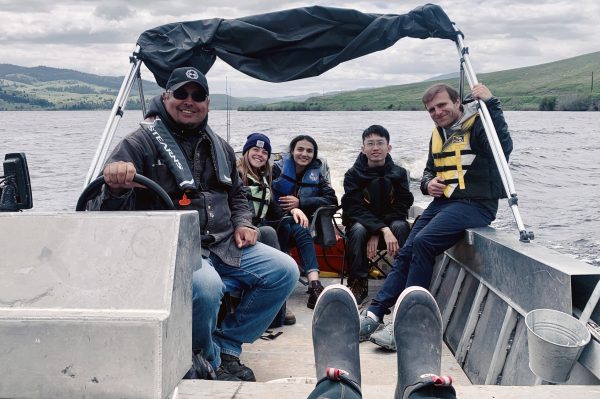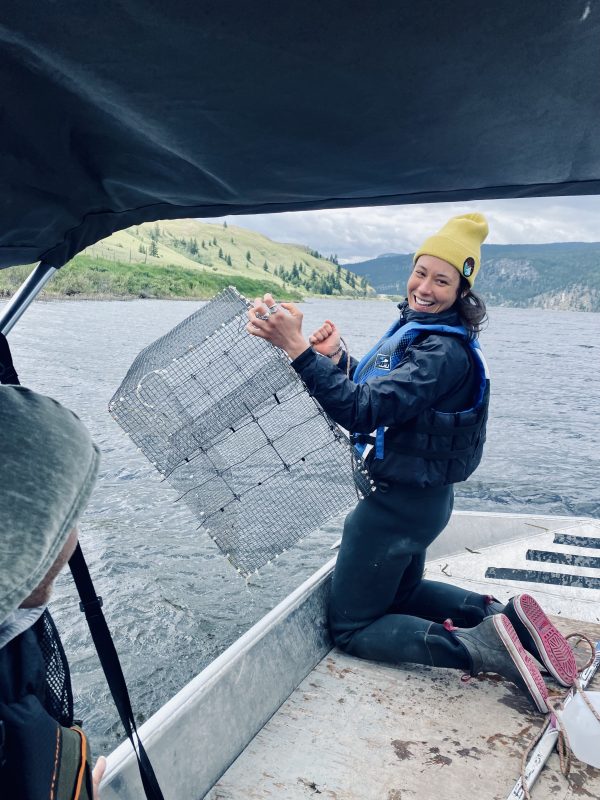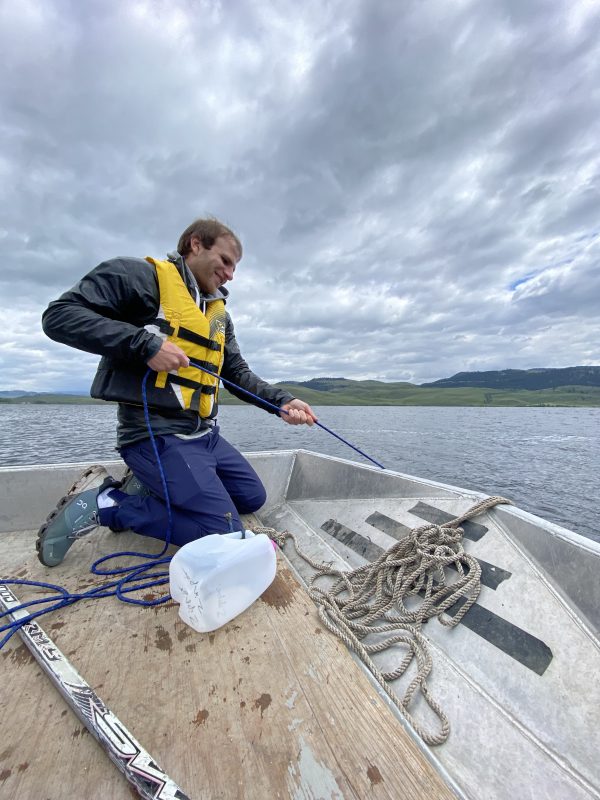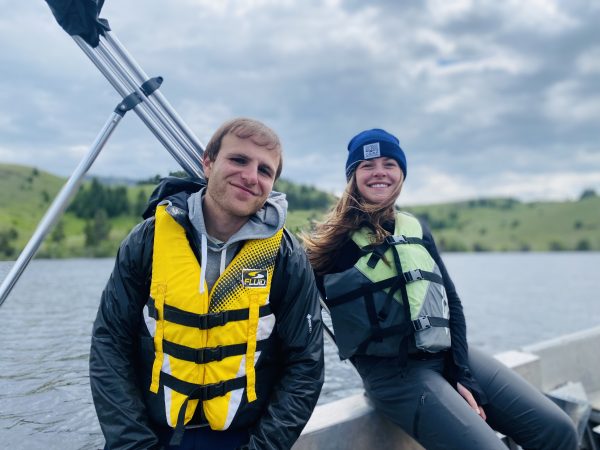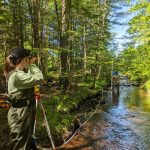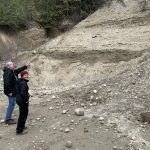New Indigenous framework for lake surveys piloted on Nicola Lake
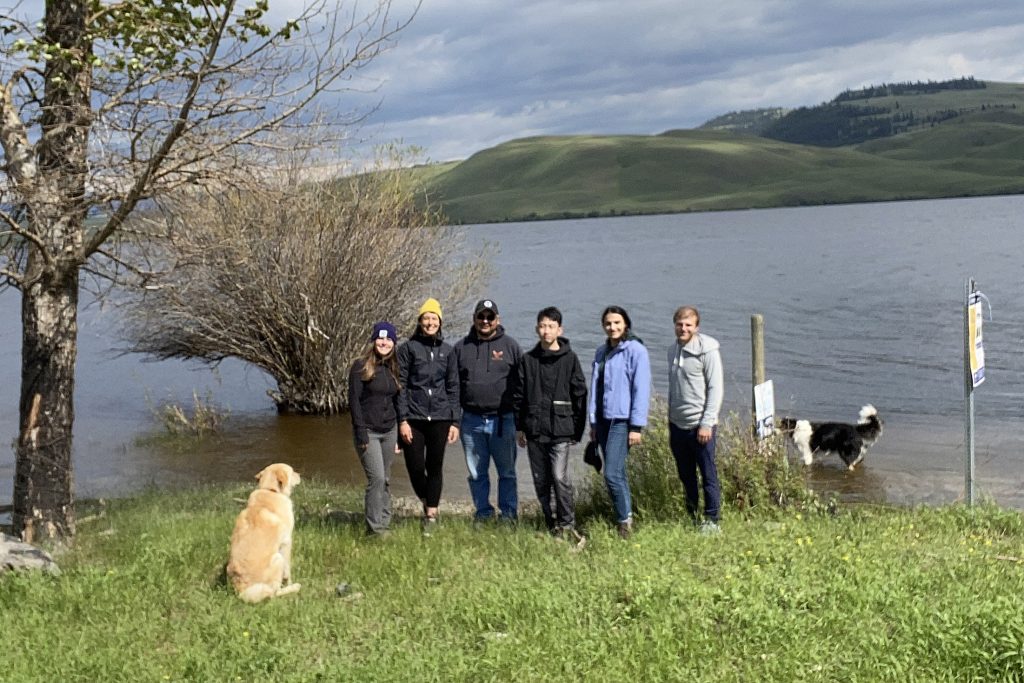 Nicola Lake is a relatively small lake but is the site of some hugely important work. A team consisting of Brian Holmes of the Upper Nicola Band, Sustainability Scholars from the University of British Columbia, and Living Lakes Canada is working to integrate Indigenous knowledge and values into federal lake foreshore health assessments and Nicola Lake near Merritt, BC is the pilot lake for this project.
Nicola Lake is a relatively small lake but is the site of some hugely important work. A team consisting of Brian Holmes of the Upper Nicola Band, Sustainability Scholars from the University of British Columbia, and Living Lakes Canada is working to integrate Indigenous knowledge and values into federal lake foreshore health assessments and Nicola Lake near Merritt, BC is the pilot lake for this project.
Living Lakes Canada’s Foreshore Integrated Management Planning (FIMP) program uses a federal protocol for surveying lakes to determine lake foreshore health. Recent updates to the methodology encourage re-surveys which identify the rate of loss of sensitive shoreline habitat. This information provides knowledge about cumulative impacts on a lake which can inform subsequent lake management options. In 2021, with funding from the Real Estate Foundation of BC, Living Lakes Canada established the FIMP-Indigenous Knowledge and Values Framework pilot project with the Upper Nicola Band to determine how Indigenous ecological knowledge and cultural values are better interwoven into the lake survey protocols. Once the pilot is completed, the framework will be applied to Nicola Lake with the goal of applying successes and learning to other lake surveys in B.C.
“Developing the Indigenous framework into the FIMP incorporates a missing perspective that will help address lake health that is being impacted by climate change and human activities,” said Holmes. “This work with Living Lakes Canada is supporting reconciliation and is inclusive of two worldviews necessary to stop the loss of sensitive shoreline habitat.”
Earlier this month the team met on a rainy Monday morning at Nicola Lake to work on the project. Led by councillor Holmes, the group discussed culturally and archaeologically significant areas of the lake’s foreshore and performed a mock lake survey. The field work required 2 days and was done by boat and on foot. Additionally, the team visited Douglas Lake to assist with an invasive species removal initiative, also headed by Holmes. Representing Living Lakes Canada were FIMP Program Director Georgia Peck and Applied Reconciliation Program Coordinator Emily Mask.
“Living Lakes Canada acknowledges the limitations of the current FIMP protocol due to its basis in Western science. We look to our Indigenous partners, whose values and knowledge of water and the interconnection between land and species have formed over generations of living symbiotically. In return, we offer a more inclusive holistic survey that best serves the health of lakes,” said Mask.
“Brian has taken on this project in addition to his numerous other commitments as councillor with the Upper Nicola band, and as head of an invasive aquatic species removal project,” said Peck. “He brings his years of experience and unyielding energy and generosity to this initiative. This partnership is about more than the project itself, it is about building trust and community”
Living Lakes Canada also recognizes the significant contributions that have been made to the project by the three Sustainability Scholars from the University of British Columbia, Mehrnaz Soleimanpour Makuei, Yiming Zhang, and Bryce Henney who are supporting the collaboration.
To learn more, visit fimp.cbwaterhub.ca or email georgia@livinglakescanada.ca.


